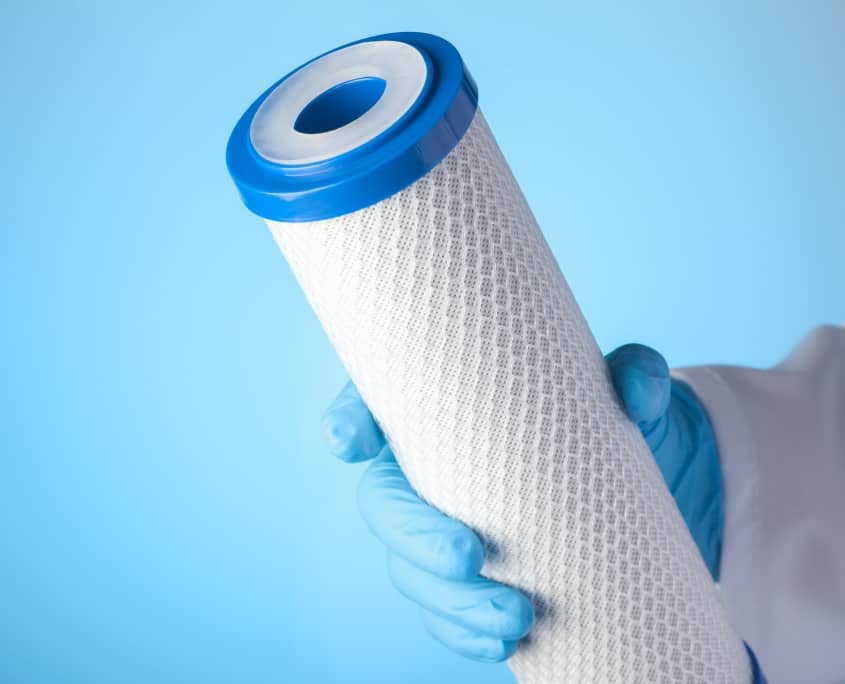Testing the integrity of filters helps pharmaceutical professionals ensure sterility across many processes. Not only is filter integrity testing crucial to creating a safe and consistent product, but a requirement per Good Manufacturing Practice (GMP).
Failure to properly test the integrity of filters before and after use can lead to multiple negative repercussions, such as contamination, equipment failure, and harm to end users. If the testing indicates integrity, a pharmaceutical company can feel confident in its previous batch’s quality and future filter usage. If testing fails, they must test the last batch and throw away the contaminated filter.
There are three standard filter integrity testing methods. The method you use varies and depends on the equipment, product, and conditions you’re working within.
We’ve previously discussed diffusion tests and bubble point tests; in this entry, we’ll dive into water intrusion tests.
When to Use a Water Intrusion Test
A water intrusion test is a highly sensitive form of non-destructive testing. Pharma companies use non-destructive testing when reusing a filter to confirm that it was not damaged during prior use and is ready to use again.
A filter is either hydrophilic, which has a membrane that attracts water, or hydrophobic, which has a membrane that repels water. Hydrophilic filters are usually single-use, whereas hydrophobic filters have a longer life and get used multiple times.
Water intrusion tests confirm the status of hydrophobic filters only.
How Does a Water Intrusion Test Work?
A water intrusion test tests the volume of water that penetrates the membrane of a hydrophobic filter under a specific amount of pressure for a particular amount of time. The correct amount of pressure will penetrate the membrane but not get it wet.
Until a certain point, the filter will withstand the pressure depending on the size of the pores. Once the water penetrates the filter’s pores, you can compare the volumetric flow rate to the equipment’s predetermined specifications.
A unique quality of water intrusion tests, compared to the other two integrity tests, is that they do not need wetting agents such as water or isopropyl alcohol. Not using solvents for wetting saves time during the testing process.
Key Considerations for Using a Water Intrusion Test
Due to its sensitive nature, pharmaceutical companies must pay close attention to and control a few factors to ensure success and reduce the chance of test failure.
These factors include:
Water Temperature and Quality
Water should be at room temperature. The recommended type of water to use is purified water or water for injection (WFI). These types of water reduce the chance of contamination.
Pore Size
Water intrusion test values differ depending on the size of the pore membrane. To ensure correct results, pharmaceutical companies must measure their results against the values for the specific pore size.
Test Time
These tests usually last 10 minutes but may change depending on the manufacturer’s specifications.
Membrane Contamination
Any contamination found on a hydrophobic membrane can compromise the validity of the water intrusion test. This is because it can allow water to penetrate the membrane faster than intended.
An example of a contaminant is the natural oils produced by an operator’s hands, making wearing gloves an essential practice. However, many companies choose to automate their filter integrity tests to increase consistency and efficiency and reduce the chance of contamination.
Room Temperature
It’s imperative that the temperature of the room stays consistent during the test. If the temperature rises or falls even slightly, you risk the chance of expansion or contraction of gas within the filter and receiving false high or low readings.
Assessing Your Filter Integrity Testing Needs
Filter integrity tests are essential to creating consistently safe and high-quality products. With so many factors to consider, knowing which test to use can be challenging.
Our pharma qualification and validation experts are ready to help you make the best choices for your unique situation.




